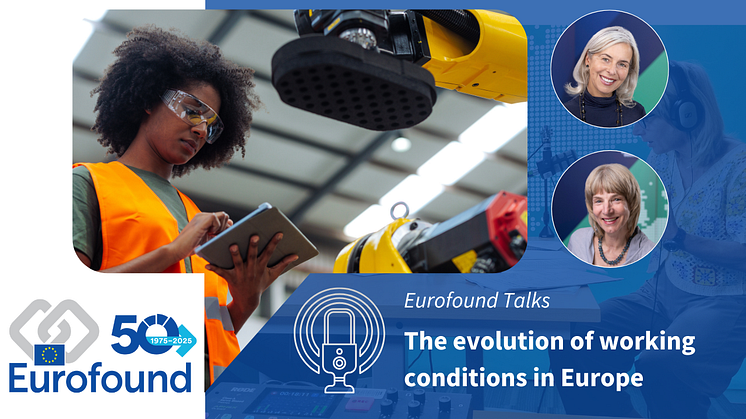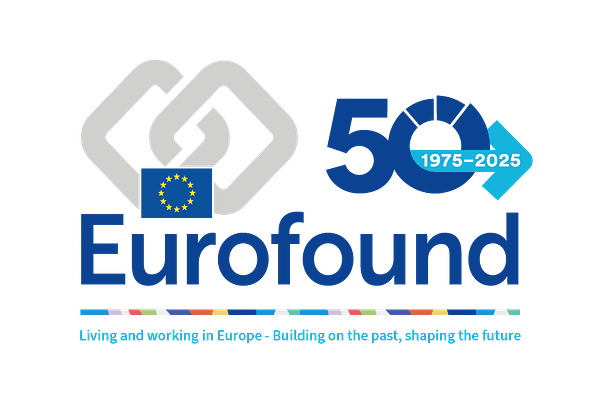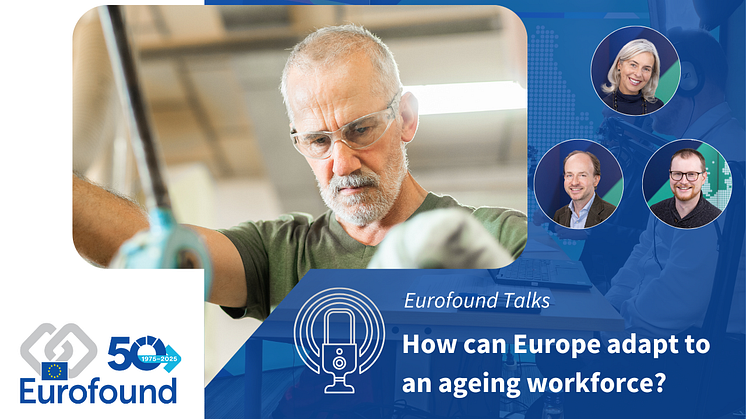
Press release -
Eurofound exposes the reality of Europe's evolving workplaces: A new era shaped by AI
The latest Eurofound Talks podcast episode delves into the evolution of working conditions over the past three decades, as Europe stands at the precipice of an AI-driven revolution in its labour markets.
The episode offers an analysis of the profound shifts currently reshaping EU labour markets. This transformation is driven by the rapid advance of artificial intelligence and digitalisation, mirroring the industrial revolutions of preceding centuries.
Host Mary McCaughey speaks with Barbara Gerstenberger, Eurofound's Head of Unit for Working Life, who draws upon insights from the European Working Conditions Survey (EWCS). This flagship survey series, spanning 35 years, provides an invaluable longitudinal dataset, charting the trajectory of working life across Europe for nearly four decades.
The discussion underscores how job tasks, profiles, and broader working conditions are in constant flux, with employment being remoulded in real time. While the current velocity of change may appear unprecedented, the world of work has consistently adapted.
Many of today's prevalent occupations were unimaginable just three decades prior. Similarly, occupational health concerns have evolved; the industrial scourges of respiratory diseases have largely receded, yielding to contemporary challenges such as technostress, burnout, and musculoskeletal disorders.
The podcast details the EWCS's methodical adaptation to these shifts, transitioning from surveying a smaller, male-dominated workforce in a 12 Member State EU in 1990 to comprehensively capturing today's diverse and digitally integrated labour force across 35 European countries.
It explores the generally positive upward convergence of working conditions across Member States, a trend partially attributable to European Union legislation, and examines the enduring impact of the COVID-19 pandemic on remote work and the critical balance between work and personal life.
The episode addresses pressing contemporary issues, including labour shortages in key sectors, often correlated with the inherent quality of jobs, and the evolving expectations of workers regarding remuneration, autonomy, and a safe working environment.
As well as charting the changing conditions recorded in various waves of the survey, it previews broad trends currently being analysed in the 2024 wave of the survey – the first findings of which are due to be published this September.
Listen to ‘The evolution of working conditions in Europe’ for free on our dedicated page, or on Spotify or Apple Podcasts.
You can also watch a behind the scenes recording of the full episode here.
Make sure to subscribe to Eurofound Talks so you don’t miss an episode.
Do you have feedback on the series, or suggestions for future episodes? Email james.higgins@eurofound.europa.eu, or engage with us on Instagram, LinkedIn or Facebook with your ideas.




